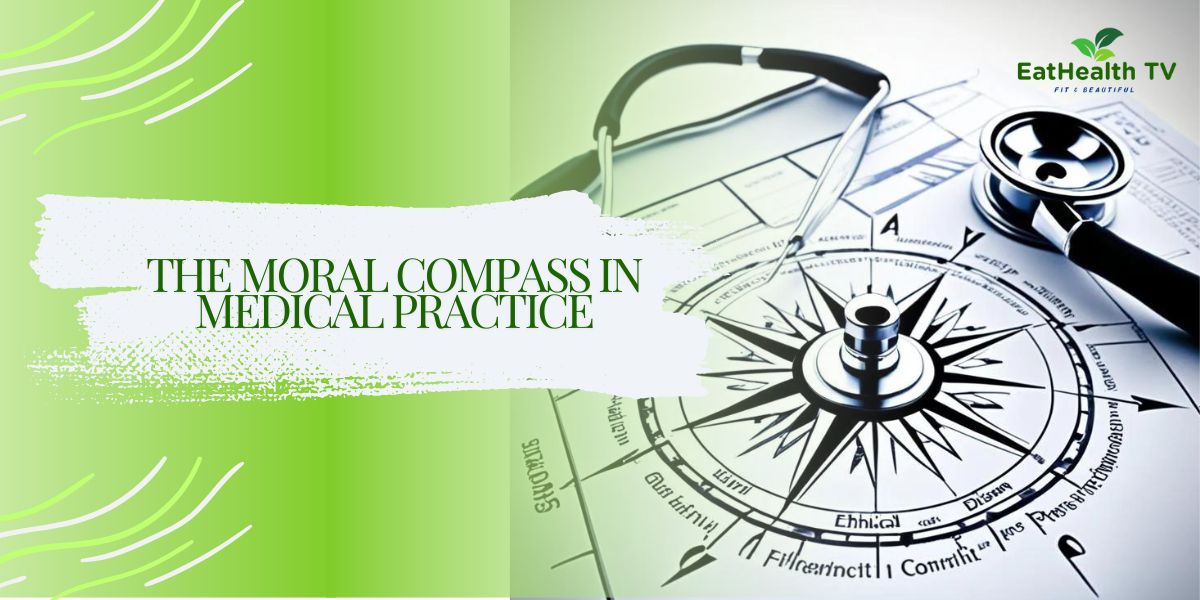The Moral Compass in Medical Practice
Navigating the Ethical Waters: Challenges and Solutions in Healthcare

The Moral Compass in Medical Practice: Navigating Ethical Challenges
In the field of medicine, practitioners are entrusted with the profound responsibility of safeguarding human health and well-being. However, alongside the pursuit of clinical excellence, healthcare professionals are confronted with complex moral dilemmas that require navigating with wisdom and integrity. From issues of patient autonomy and confidentiality to the allocation of limited resources, the moral compass in medical practice serves as a guiding force in decision-making and ethical conduct. In this comprehensive exploration, we delve into the ethical principles that underpin medical practice, examine common moral challenges faced by healthcare providers, and discuss strategies for upholding the highest standards of ethical care.
Understanding Medical Ethics
What Are Medical Ethics?
Medical ethics encompasses the moral principles and values that govern the conduct of healthcare professionals in their interactions with patients, colleagues, and society at large. Rooted in principles of beneficence, non-maleficence, autonomy, and justice, medical ethics provides a framework for ethical decision-making and professional conduct in clinical settings. Just as we know Fitness Ethics: Striking a Balance in Workouts
The Importance of Medical Ethics
Ethical considerations are fundamental to the practice of medicine for several reasons:
- Patient-Centered Care: Medical ethics places the interests and well-being of patients at the forefront of clinical decision-making, ensuring that healthcare interventions are guided by compassion, empathy, and respect for patient autonomy.
- Trust and Integrity: Upholding ethical standards fosters trust between healthcare providers and patients, strengthening the therapeutic relationship and enhancing the quality of care delivered. Patients rely on healthcare professionals to act with honesty, integrity, and transparency in all aspects of their medical care.
- Professionalism: Medical ethics defines the standards of professionalism expected of healthcare practitioners, including honesty, accountability, and a commitment to lifelong learning and self-improvement. Adherence to ethical principles is integral to maintaining the integrity and reputation of the medical profession.
- Social Responsibility: Healthcare professionals have a moral obligation to promote public health, social justice, and equitable access to healthcare services. Ethical practice involves advocating for policies and practices that address healthcare disparities and promote the well-being of all members of society.
Ethical Challenges in Medical Practice
Patient Autonomy and Informed Consent
Respecting patient autonomy is a cornerstone of medical ethics, emphasizing the right of patients to make informed decisions about their medical care. However, ensuring truly informed consent can be challenging, particularly in cases where patients may lack the capacity to make decisions or where cultural, linguistic, or educational barriers exist.
Confidentiality and Privacy
Maintaining patient confidentiality is essential for building trust and preserving the confidentiality of sensitive medical information. Healthcare providers must navigate the delicate balance between respecting patient privacy and fulfilling legal and ethical obligations to disclose information in certain circumstances, such as when there is a risk of harm to the patient or others.
End-of-Life Care and Euthanasia
The ethical considerations surrounding end-of-life care and euthanasia are among the most contentious issues in medical ethics. Healthcare professionals must grapple with questions of patient autonomy, quality of life, and the sanctity of human life, while also respecting diverse cultural and religious beliefs regarding death and dying.
Resource Allocation and Healthcare Equity
Scarce healthcare resources, such as organ transplants, intensive care beds, and life-saving medications, raise ethical questions about how to prioritize allocation in a fair and equitable manner. Healthcare professionals must consider principles of distributive justice and maximize benefits while minimizing harm when making difficult decisions about resource allocation.
Upholding Ethical Standards in Medical Practice
Commitment to Continuous Education
Staying informed about current ethical guidelines, legal regulations, and best practices is essential for healthcare professionals to navigate ethical challenges effectively. Continuing education and professional development opportunities can enhance clinicians’ ethical decision-making skills and promote a culture of ethical reflection within healthcare organizations.
Open Communication and Collaboration
Effective communication and collaboration among members of the healthcare team are essential for addressing ethical dilemmas and resolving conflicts that may arise in clinical practice. Interdisciplinary discussions and ethical consultations can provide valuable insights and perspectives, leading to more informed and ethically sound decisions.
Cultivation of Empathy and Compassion
Empathy and compassion are integral to providing patient-centered care and upholding ethical standards in medical practice. Healthcare professionals must strive to understand their patients’ perspectives, values, and preferences while demonstrating empathy and compassion in their interactions.
Ethical Leadership and Advocacy
Healthcare leaders have a responsibility to foster a culture of ethical excellence within their organizations and advocate for policies and practices that prioritize patient welfare, professionalism, and social justice. Ethical leadership involves leading by example, promoting ethical decision-making, and addressing systemic issues that may compromise ethical standards.
Conclusion
The moral compass in medical practice serves as a guiding light for healthcare professionals as they navigate the complex terrain of patient care, clinical decision-making, and ethical dilemmas. By upholding the principles of beneficence, non-maleficence, autonomy, and justice, healthcare providers can ensure that their actions align with the highest ethical standards and promote the well-being of patients and society. Through ongoing education, open communication, empathy, and ethical leadership, we can collectively strive to uphold the noble ideals of medical ethics and fulfill our duty to serve humanity with integrity and compassion.




